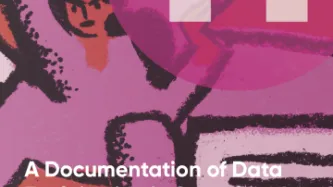Search
Content type: Press release
PI's new report documents 10 tactics that are being developed and deployed to delay or curtail access to reproductive healthcare globally. Especially given the current crisis, as digital services become even more important, we hope this report will highlight how those opposed to reproductive rights are actively developing technical tools to delay or curtail access. A downloadable multi-media asset is attached.
Examples of tech being developed:
Developing digital dossiers about those…
Content type: Long Read
The organised opposition to sexual and reproductive rights has gone digital. Data exploitative tech is being developed that is capable of obtaining vast amounts of intimate information about people’s reproductive health, and delaying or curtailing access to reproductive healthcare.
Technology provides incredible opportunities to democratise access to reproductive health information, services, and care. It can play a vital role in protecting the lives of those needing sexual and reproductive…
Content type: Video
PI's Reproductive Rights and Privacy Project speaks with Nandini Archer from the 50/50 Project at Open Democracy about how Heartbeat International is coordinating and promoting misleading health information globally information through it’s international affiliates.
More here: https://privacyinternational.org/taxonomy/term/677
Content type: Video
PI's Reproductive Rights and Privacy Project speaks with Dr. Subasri Narasimhan and Dr. Dabney Evans from the Rollins School of Public Health at Emory University in the US about their paper which documents how misleading health information about reproductive health can flow into policy and legislative debates.
More here: https://privacyinternational.org/taxonomy/term/677
A narrative analysis of anti-abortion testimony and legislative debate related to Georgia’s fetal “heartbeat”…
Content type: Video
PI's Reproductive Rights and Privacy Project speaks with Ruth Taylor, the CEO of the UK-based charity Abortion Support Network about how opposition groups are using misinformation to delay people from accessing safe abortion care.
More here: https://privacyinternational.org/taxonomy/term/677
Content type: Video
PI's Reproductive Rights and Privacy Project speaks with Tasneem Mewa and Ambika Tandon from the Center for Internet and Society about data exploitation in reproductive rights in India.
This podcast is part of a special series from PI's Reproductive Rights and Privacy Project.
The series comes out on the last Monday of every month.
You can listen and subscribe to the podcast where ever you normally find your podcasts:
Spotify
Apple podcasts
Google podcasts
Castbox
Overcast
Pocket…
Content type: News & Analysis
This week International Health Day was marked amidst a global pandemic which has impacted every region in the world. And it gives us a chance to reflect on how tech companies, governments, and international agencies are responding to Covid-19 through the use of data and tech.
All of them have been announcing measures to help contain or respond to the spread of the virus; but too many allow for unprecedented levels of data exploitation with unclear benefits, and raising so many red flags…
Content type: Case Study
The right to privacy is one of the precedents used to establish reproductive rights. Laws and policies which impede upon individuals’ rights to access sexual and reproductive health services may also interfere with individuals’ right to privacy and to make autonomous decisions as it pertains to their health and fertility, meaning the two are linked. Reproductive rights are necessary for bodily autonomy.
Reproductive rights have, more recently, been put at risk by one of the most concerning…
Content type: Long Read
This piece was written by Aayush Rathi and Ambika Tandon, who are policy officers at the Centre for Internet and Society (CIS) in India. The piece was originally published on the website Economic Policy Weekly India here.
In order to bring out certain conceptual and procedural problems with health monitoring in the Indian context, this article posits health monitoring as surveillance and not merely as a “data problem.” Casting a critical feminist lens, the historicity of surveillance practices…
Content type: Video
In this podcast Sara Nelson of PI’s Reproductive Rights and Privacy Project talks about the US based international anti-abortion organisation Heartbeat International and the technologies they are developing for their international network of affiliate organisations. We also discuss what reproductive rights are and why PI is working on the topic:
Music by Glass Boy, find more of their work here: glassboy.bandcamp.com/album/enjoy (creativecommons.org/licenses/by-nd/3.0/)
Content type: Long Read
We are excited to spotlight our Reproductive Rights and Privacy Project!
The Project is focused on researching and exposing organisations that collect and exploit the information of those seeking to exercise their reproductive rights. Working together with PI partners, other international grassroots organisations and NGOs, PI is researching and advocating against this data exploitation.
So, what are reproductive rights?
Sexual and reproductive rights, which are contained within Economic,…
Content type: Advocacy
Privacy International (PI) welcomes the opportunity to respond to this consultation. Established in 1990, PI is a non-profit organisation based in London, dedicated to defending the right to privacy around the world.
The right to privacy is one of the precedents used to establish reproductive rights, and it is established by several international and regional legal instruments. The primary link between the two stems from the fact that laws and policies which impede upon individuals’ rights to…
Content type: News & Analysis
Photo by Ray Witlin / World Bank CC BY-NC-ND 2.0
This article has been written by Ambika Tandon, Policy Officer at the Centre for Internet and Society, in collaboration with Privacy International.
On October 17th 2019, the UN Special Rapporteur (UNSR) on Extreme Poverty and Human Rights, Philip Alston, released his thematic report on digital technology, social protection and human rights. Understanding the impact of technology on the provision of social protection – and, by extent, its…
Content type: Examples
Rewire.News has reported that Google apparently remains unwilling to differentiate its Maps search results between clinics in the US that offer abortion care and faith-based organisations that do not provide abortion care.
Rewire.News reports that, in contrast Yelp "made a concerted effort" to ensure that the company differentiated between faith-based centres, also known as crisis pregnancy centres in the US, and medical facilities that provided medical reproductive healthcare, including…
Content type: Examples
A new investigative report from Sharona Coutts at Rewire exposed how anti-choice groups, including at least one adoption agency, were resorting to using a technology called "geofencing" to find and then target individuals they believe are considering abortion, with targeted ads.
Two groups, a clearinghouse that operates many crisis pregnancy centers and a large adoption agency called Bethany Christian Services, were reported to have hired Copley Advertising to provide them with this…
Content type: Examples
Ahead of the Irish referendum to amend the Constitutions of Ireland to allow the parliament to legislative for abortion which took place in May 2018, Google decided to stop all advertising relating to the referendum on all of its advertising platforms, including AdWords and YouTube.
This followed decisions by Facebook to no longer accept advertising relating to the referendum funded by foreign organisations outside Ireland, and Twitter not allowing any advertising in relation to the…
Content type: Examples
Bethany Christian Services, an international pregnancy support and adoption agency, is launching a programme with Copley Advertising to send targeted ads to individuals visiting Planned Parenthood clinics, abortion clinics, methadone clinics and high-risk areas (AHPA). The targeting will be done through the use of geo fencing based on smartphones located within the selected locations.
Source: https://www.liveaction.org/news//adoption-agency-send-pro-life-ads-smartphones-inside-abortion-…
Content type: News & Analysis
Photo by Jake Hills on UnsplashOur research has shown how some apps like Maya by Plackal Tech and MIA by Mobbap Development Limited were – at the time of the research – sharing your most intimate data about your sexual life and medical history with Facebook.Other apps like Mi Calendario, Ovulation Calculator by Pinkbird and Linchpin Health were letting Facebook know every time you open the app.We think companies like theses should do better and we are pleased to see some of them have already…
Content type: Long Read
In December 2018, Privacy international exposed the dubious practices of some of the most popular apps in the world.
Out of the 36 apps we tested, we found that 61% automatically transfer data to Facebook the moment a user opens the app. This happens whether the user has a Facebook account or not, and whether they are logged into Facebook or not. We also found that some of those apps routinely send Facebook incredibly detailed and sometimes sensitive personal data. Again, it didn’t matter if…
Content type: Examples
The pregnancy apps many women were using in December 2018 proved to be incapable of handling miscarriages, even though up to 20% of all known pregnancies end this way. There are only two choices: allow the apps to continue sending alerts celebrating the pregnancy's progress or delete the pregnancy entirely, losing all the records they'd saved - information that doctors routinely request. Many menstruation apps, similarly, lack the ability to adapt to long breaks and disrupted cycles, and many…
Content type: Examples
Le Monde exposed anti-IVG (anti-abortion) advertising on Facebook as part of a borader campaign led by anti-abortion website IVG.net. The advertisement relied on stock photos and fake testimonies posted in public Facebook groups and promoted to young women. Most of the posts attempt to promote the idea that abortion leads to mental health issues, a fact that has been proved to be falacious.
https://www.lemonde.fr/les-decodeurs/article/2018/07/11/les-anti-ivg-ciblent-les-jeunes-femmes-grace-aux…
Content type: Examples
French website IVG.net, first Google result when typing IVG (Interuption Volontaire de Grossesse or abortion in french), has been exposed as being anti-abortion website spreading misinformation. Offering an official looking "Numero vert" (free to call phone number number), IVG.net attempts to convince pregnant women calling the service that abortion is a high risk operation which will have terrible impact on their health and personal life, pressuring women to not undertake such operation. The…
Content type: Long Read
Photo by David Werbrouck on Unsplash
This is an ongoing series about the ways in which those searching for abortion information and procedures are being traced and tracked online. This work is part of a broader programme of work aimed at safeguarding the dignity of people by challenging current power dynamics, and redefining our relationship with governments, companies, and within our own communities. As an enabling right, privacy plays an important role in supporting the exercise of…
Content type: Examples
Cases of people being denied healthcare as they fail to provide an Aadhaar number have already started emerging. A 28-year old domestic worker, for instance, had to be hospitalised for a blood transfusion after she had an abortion with an unqualified local physician. She had been denied an abortion, to which she was legally entitled, from a reputable government hospital, as she did not have an Aadhaar card. Following this case, 52 public health organisations and individuals issued a statement…
Content type: News & Analysis
Creative Commons Photo Credit: Source
In the third episode of the Gender and Privacy Series, we talk about sex and privacy with two female activists: Sarah Jamie Lewis, an expert on the security of internet-connected sex toys, and Joana Varon, founder of the female-led Brazilian NGO Coding Rights.
Listen to the podcast here.
















